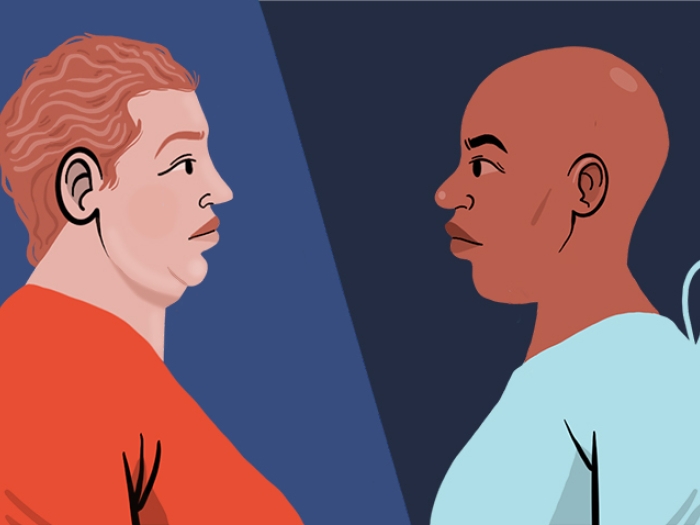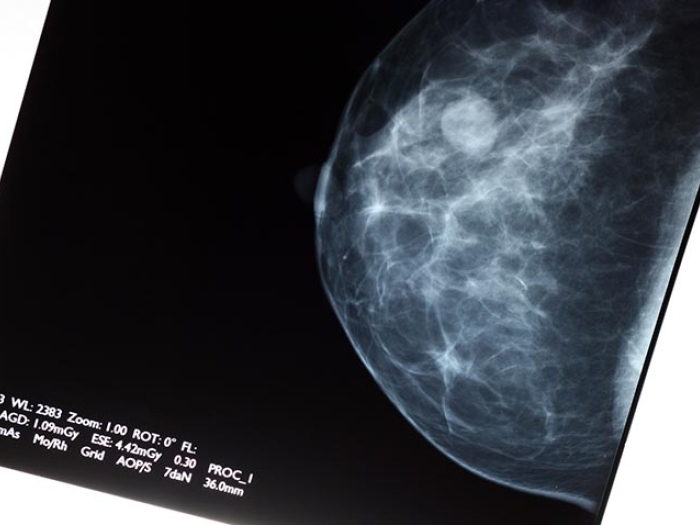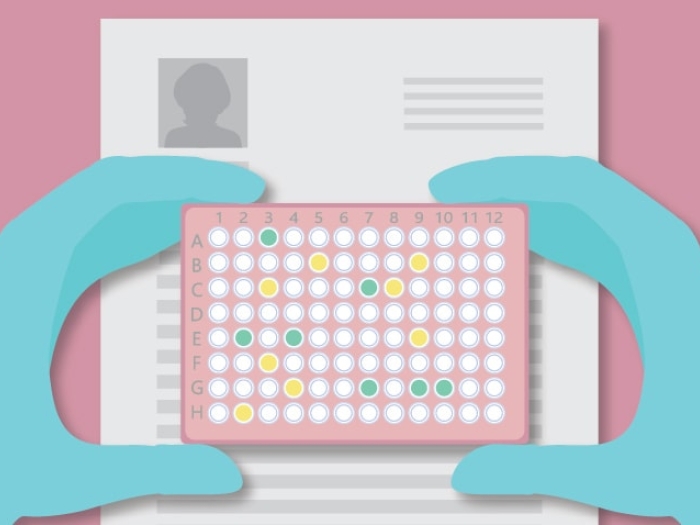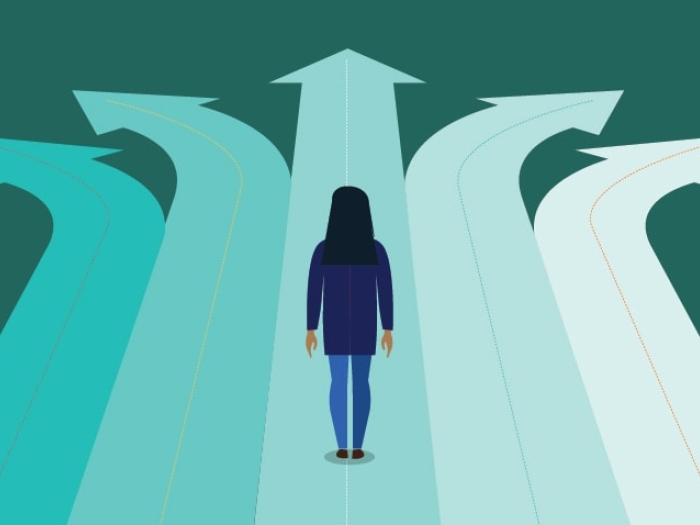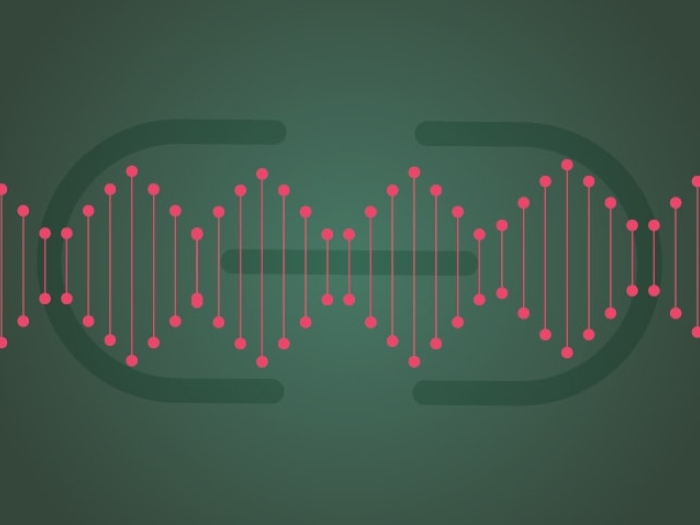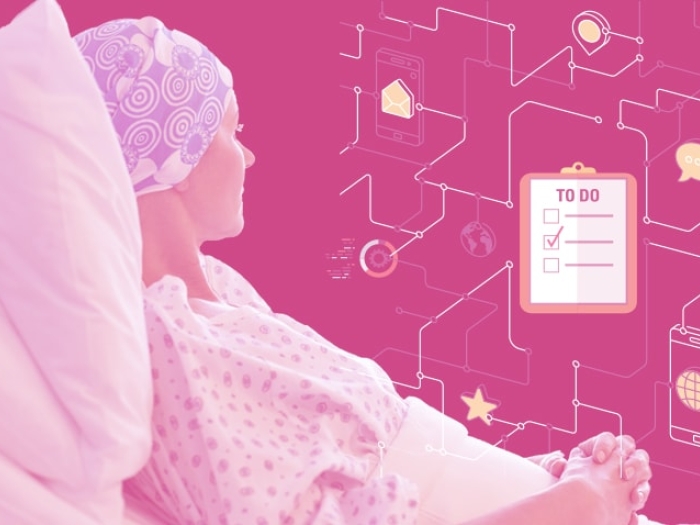Eating more fruits, vegetables, whole grains and omega-3-rich foods improved fatigue and sleep quality in breast cancer survivors, a U-M study finds.
7:00 AM
Author |
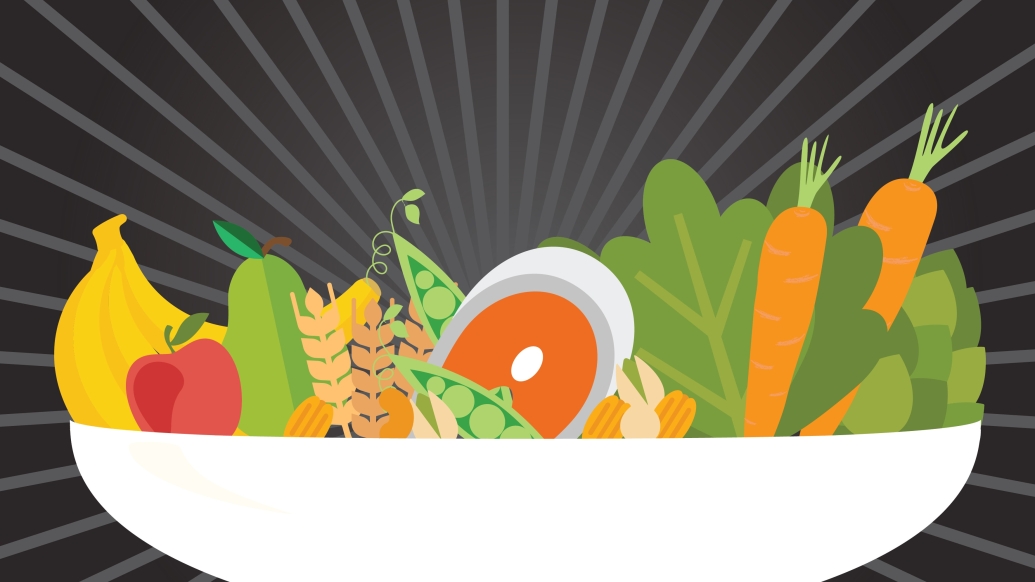
There's a reason other than weight loss for breast cancer survivors to load their plate with fruits, vegetables, fish, nuts and seeds.
MORE FROM THE LAB: Subscribe to our weekly newsletter
A new study finds that this diet — full of healthy foods known to decrease inflammation — led to reduced fatigue and better sleep quality for this group.
Fatigue is one of the most common and persistent long-term effects of breast cancer treatment. It can affect women more than 10 years after their treatment ends.
As many as a third of breast cancer survivors experience moderate to severe persistent fatigue. About half of women who have fatigue also report sleep problems.
"Almost every study in breast cancer survivors is about how to lose weight," says study author Suzanna Zick, N.D., MPH, research associate professor of family medicine at the University of Michigan Medical School. "While that's a great goal, there are a lot of women who feel defeated by dieting.
"Our study was not about losing weight. It was about improving the quality of what women actually ate. They can still make these changes even if they're not losing weight."
In this pilot study, 30 women who reported fatigue after treatment for early stage breast cancer were randomized to participate in a fatigue reduction diet or to get general information about healthy living unrelated to diet.
The diet called for:
-
Half of grain intake from whole grains
-
Five servings of vegetables, including at least two of leafy greens
-
Two servings of fruit
-
One serving of fatty fish
-
One serving of nuts, seeds or oils
Participants were given checklists to keep track of their target foods. They had three in-person research visits and six telephone counseling visits with a registered dietitian during the three-month study. They were told to maintain the same total number of calories they typically ate.
The control group had the same schedule of in-person and phone counseling, but their sessions focused on general topics such as oral health, healthy skin and preventing colds and flu. There was no mention of diet.
All participants completed questionnaires at the beginning and end of the study to determine the severity and impact of fatigue and the quality of their sleep.

Menu matters
Participants in the fatigue reduction diet reported an average 44 percent decrease in fatigue during the study, compared with 8 percent in the general health control group. Sleep quality improved nearly 50 percent in the diet group; no change was reported in the control group.
SEE ALSO: Study: Acupressure Reduces Fatigue in Breast Cancer Survivors
"It was a very large difference. I was surprised how large it was," says Zick, who is also research associate professor in the U-M School of Public Health. The study is published in Breast Cancer Research and Treatment.
The researchers also looked at participants' serum nutrient levels and discovered an increase in the types of nutrients found in the foods they wanted people to eat — nutrients such as carotenoids, lutein, lycopene and omega-3 fatty acids. This demonstrates that participants were, in fact, increasing their consumption of these foods.
They also found the ratio of omega-3 to omega-6 fatty acids increased. Omega-6 fatty acids are found in fried foods, cakes, mayonnaise and many processed or fast foods. They're known to promote inflammation and can compete with the healthful omega-3 fatty acids.
"Most people have too much omega-6s, with a ratio around 1:12 of omega-3 to omega-6. Your body needs closer to a 1:1 ratio," Zick says. "People continually look at supplementing omega-3s, but they rarely look at decreasing omega-6s. It's really about that ratio."
In the study, researchers found a direct link between a change in the omega-3 to omega-6 ratio and a reduction in fatigue. Both groups maintained the same body mass index during the study, suggesting it was the diet — and not weight loss — that reduced fatigue.
Previous research has suggested that inflammation may contribute to fatigue in breast cancer survivors. Some initial studies have found that a diet high in antioxidants helps alleviate fatigue.
The researchers have begun to further examine the blood and urine samples collected in this study to better understand how the fatigue-reducing diet works within the body. They plan to use those observations to create a larger study.
In the meantime, Zick says, this low-cost nutritional approach is worth a try.
"All of these are healthy dietary recommendations," Zick says. "We should be eating these kinds of foods anyway."

Explore a variety of healthcare news & stories by visiting the Health Lab home page for more articles.

Department of Communication at Michigan Medicine
Want top health & research news weekly? Sign up for Health Lab’s newsletters today!
